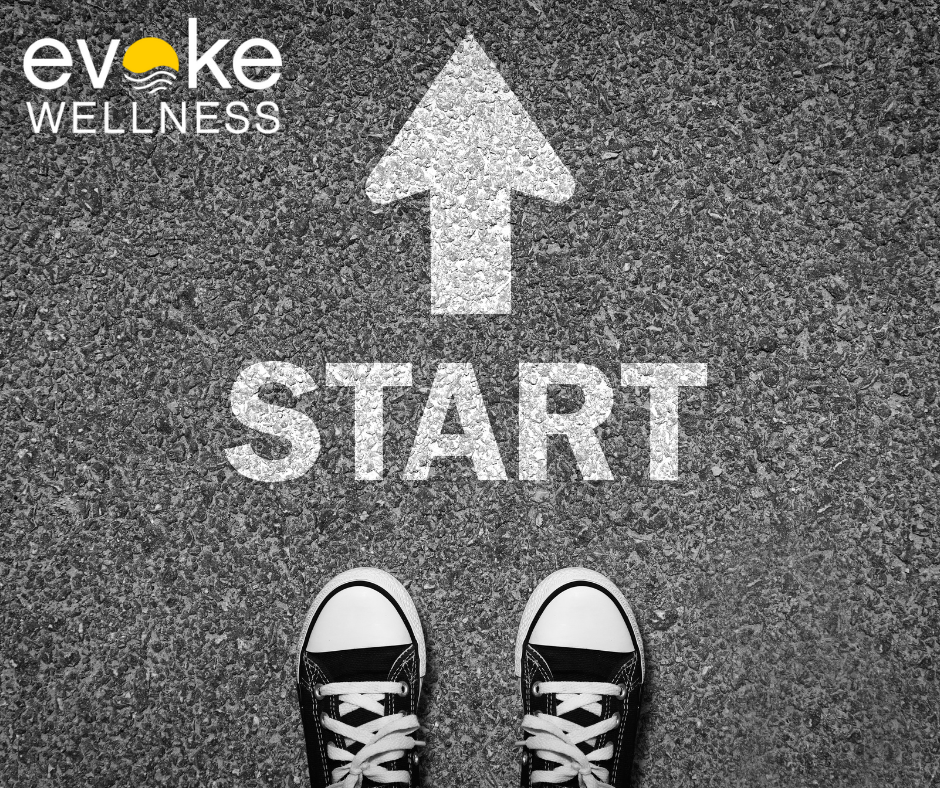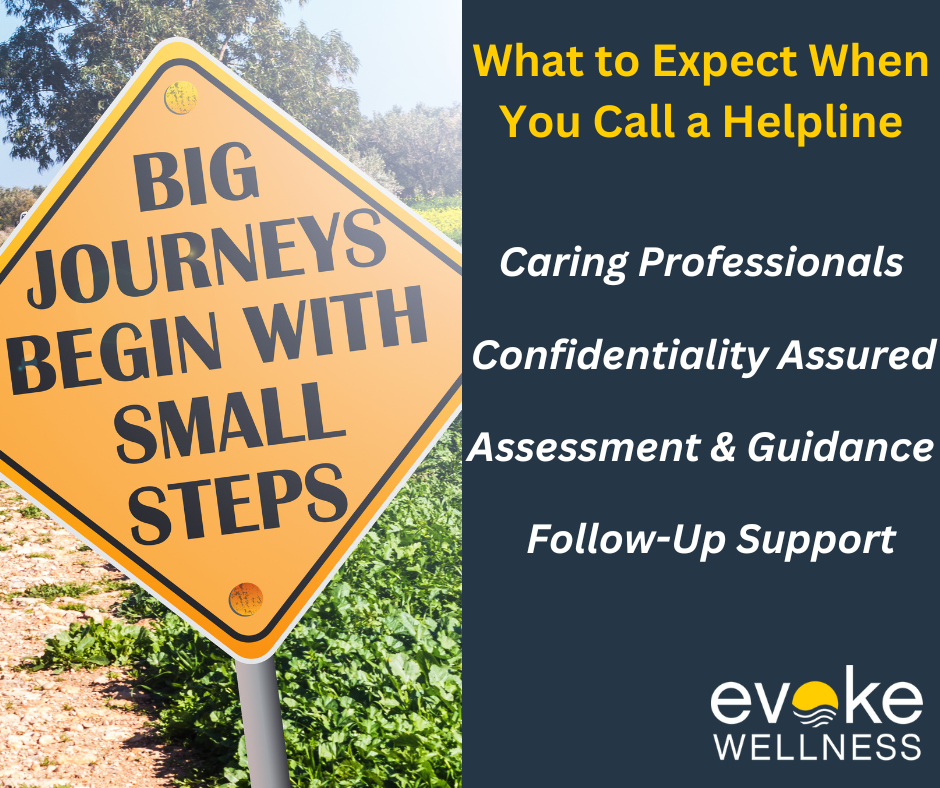You’ve taken the courageous first step and called an addiction helpline. Now what? The road to recovery may seem daunting, but you’re not alone on this journey. Understanding what comes next can help ease your anxiety and set you up for success. In this guide, we’ll walk you through the typical next steps after reaching out for help. From initial assessments to treatment options and ongoing support, you’ll gain insight into the recovery process. Remember, every path is unique, but knowing what to expect can empower you to take control of your future. Let’s explore the transformative journey that awaits you.
Call us at (866)429-2960 today or reach out online.
What to Expect When You Call a Helpline
Caring Professionals
When you call an addiction helpline, you’ll be greeted by caring professionals. Counselors are trained to listen without judgment and provide support tailored to your unique situation.
Confidentiality Assured
Rest assured, your call is completely confidential. You can share openly, knowing your privacy is protected.
Assessment & Guidance
The counselor will ask questions to assess your needs and provide guidance on next steps. This may include treatment options, support groups, or other resources for recovery.
Follow-Up Support
Many helplines offer follow-up support through calls, texts or emails. This continuous care can help keep you motivated on your journey to sobriety.
The key is to approach the call openly and honestly. The path starts with this first courageous step towards healing.
Finding the Right Treatment Program for You
Assess Your Needs
The first step is understanding your unique situation. What substance are you struggling with? Do you have co-occurring mental health issues? Reflect on your goals – complete recovery or harm reduction?
Explore Options
Research different program types like inpatient, outpatient, or intensive outpatient. Consider location, duration, cost, and approach (e.g. 12-step, non-12-step, holistic). Make a list of programs matching your criteria.
Get Expert Guidance
Speak to an addiction specialist who can evaluate your case and make personalized recommendations. They may suggest certain evidence-based therapies or levels of care. Their insights are invaluable.
Making a Plan for Recovery
After reaching out for help, it’s crucial to create a roadmap for your recovery journey. Here are some key steps:
Define Your Goals
- What does success look like for you? Sobriety? Healthier coping mechanisms?
- Set specific, measurable, achievable goals to stay motivated.
Build Your Support System
- Identify supportive friends, family, or join a support group.
- An accountability partner can help navigate challenges.
Explore Treatment Options
- Discuss inpatient, outpatient, or therapy programs with professionals.
- Be open to different approaches for long-term success.
This plan provides structure as you embark on this transformative path. Celebrate small wins and adjust as needed – sustainable recovery is a lifelong process.
Getting Support on Your Path to Sobriety
Overcoming addiction is a profound journey, but you don’t have to go it alone. Seeking support can provide invaluable guidance and encouragement.
Counseling and Therapy
- Individual, group, or family counseling sessions help address root issues
- Cognitive-behavioral therapy equips you with coping strategies
- Trauma-informed care promotes healing from past experiences
Support Groups
- Peer support groups connect you with others on a similar path
- Share experiences, struggles, and victories in a safe environment
- Alcoholics Anonymous and Narcotics Anonymous offer widespread programs
Sober Living Homes
- Structured, substance-free living environments foster accountability
- Residents support each other through shared experiences
- Transition back into independent living with a strong foundation
Online Resources
- Virtual support groups and recovery apps increase accessibility
- Educational materials deepen your understanding of addiction
- Online forums facilitate connecting with a global community
Surround yourself with a network of care. The path may be challenging, but you have the strength to persevere – and help is always available.
Creating a Fulfilling Life in Recovery
Embrace a New Lifestyle
Recovery is an ongoing journey of self-discovery. Embrace positive lifestyle changes to build a fulfilling, substance-free life. Explore new hobbies, reconnect with loved ones, and nurture your physical and mental well-being.
Develop a Support System
Surrounding yourself with a supportive network is crucial. Seek out support groups, counseling, or a sponsor who can provide guidance and accountability. Building meaningful connections can help prevent relapse and foster personal growth.
Practice Self-Care
Make self-care a priority. Engage in activities that promote relaxation, such as exercise, mindfulness practices, or creative pursuits. Taking care of your physical and emotional needs can improve your overall well-being and resilience.
Set Realistic Goals
Set achievable goals that align with your values and aspirations. Celebrate small victories along the way, and don’t be discouraged by setbacks. Recovery is a process, and progress takes time and perseverance.
Maintaining Hope and Perseverance
Embrace the Journey
Recovery is a lifelong process – celebrate small wins along the way. Develop a support system to lean on during difficult times. Stay motivated by visualizing your future self, free from addiction’s chains.
Practice Self-Compassion
Setbacks are inevitable, but do not define you. Show kindness towards yourself. Addiction alters brain chemistry – healing takes patience. Replace self-judgment with self-empathy.
Nurture Resilience
Perseverance stems from resilience. Build resilience through healthy coping strategies like exercise, meditation or journaling. Reframe challenges as opportunities for growth.
Frequently Asked Questions About Life After Calling a Helpline
Getting the Right Support
After taking that courageous first step, many wonder what’s next. The path looks different for everyone, but having the proper guidance is crucial. Remember, you don’t have to walk this journey alone.
- What type of treatment will I receive?
- Will I need to go to rehab?
- How can I get support for my family?
Preparing for Change
Making significant lifestyle changes can feel overwhelming. Taking it one day at a time and celebrating small wins helps build momentum. Surround yourself with a positive support system.
- How do I avoid triggers and stay motivated?
- What coping strategies are recommended?
- How can I rebuild strained relationships?
Managing Setbacks
Setbacks are a normal part of recovery. The key is learning from them and getting back on track with a renewed commitment. Ongoing counseling and peer support provide invaluable encouragement.
- What if I slip or relapse?
- How can I overcome feelings of guilt or shame?
- Where can I find local recovery meetings?
Conclusion
Your Next Steps
As you embark on this journey of recovery, remember that calling the helpline was just the first step. The path ahead may seem daunting, but you’ve already shown incredible strength by reaching out. Here’s what to keep in mind:
- Stay committed to your decision
- Lean on your support system
- Be patient with yourself
- Celebrate small victories
Remember, recovery is a process, not a destination. There may be setbacks, but each day offers a new opportunity for growth. By staying focused on your goals and utilizing the resources available to you, you’re setting yourself up for success. You’ve taken a brave first step – now keep moving forward, one day at a time.
Begin Your Journey with Evoke Wellness
If you or a loved one is considering treatment, Evoke Wellness invites you to contact us. Our compassionate team is ready to answer your questions, discuss your needs, and help you take the first steps toward recovery. At Evoke Wellness, you will find more than just a treatment program – you’ll discover a community dedicated to your wellness and success. Together, let’s embrace the journey to recovery and the promise of a new beginning. Call us at (866)429-2960 today or reach out online.



